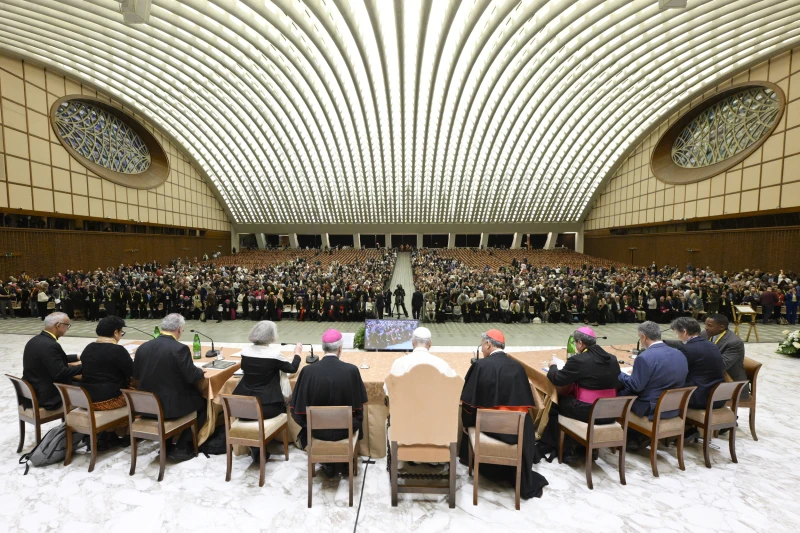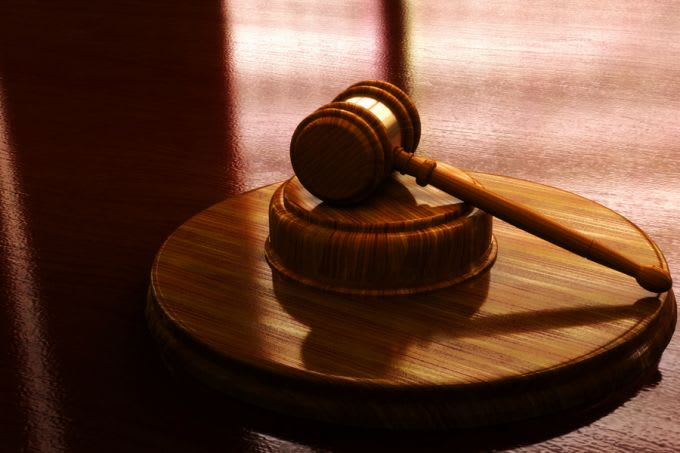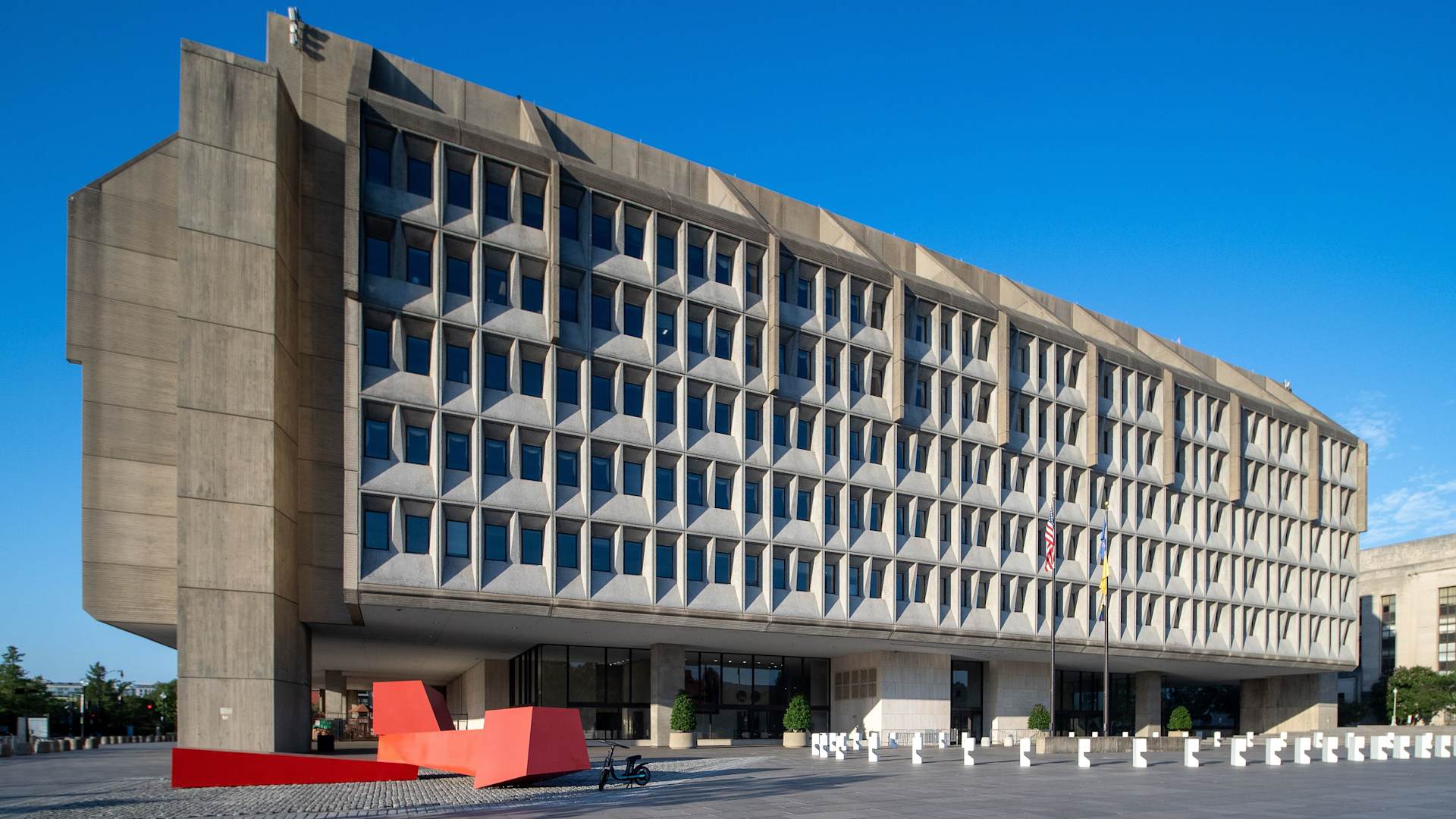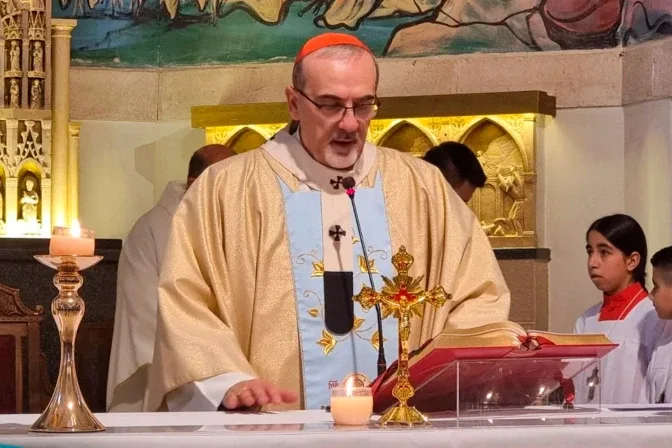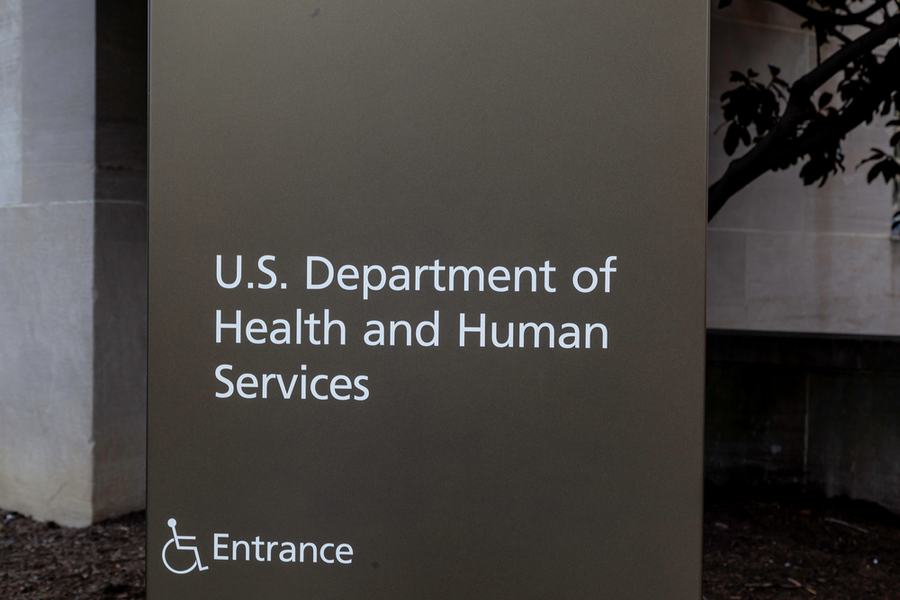
Pope Leo XIV listens to reports from seven representatives around the world about the implementation of synodality on their continents during the jubilee of synodal teams and participatory bodies at the Vatican on Oct. 24, 2025. / Credit: Vatican Media
Vatican City, Nov 19, 2025 / 13:53 pm (CNA).
Reports from the Synod on Synodality published this week reveal that expert groups continue to discuss women’s participation in the Church but not the specific question of a possible female diaconate, which has been turned over to a newly-revived 2020 commission.
The reports also show that a new group on the liturgy, requested by Pope Leo XIV, is not addressing the Vatican’s controversial restrictions on the Traditional Latin Mass.
According to a report published Nov. 17, during the second session of the Synod on Synodality in October 2024, Pope Francis “reactivated the work” of a papal commission on the female diaconate first created in 2020.
“All synodal contributions related to this subject have been forwarded to that commission for its consideration,” a one-page report from a study group on Church ministries says.
The interim report on the group’s progress, published ahead of full reports, which are due at the end of the year, was signed by Father Armando Matteo, secretary of the doctrinal section of the Dicastery for the Doctrine of the Faith, which is overseeing the highly-watched expert panel.
Matteo confirmed to CNA that the synod is no longer examining a possible female diaconate and the question is in the hands of the now-revived 2020 commission, whose members “respond to the Holy Father.”
In April 2020, Pope Francis created a 10-person theological commission to study the question of a female diaconate, the second commission he formed on the topic during his pontificate.
An original member of the 2020 commission, permanent deacon and seminary professor James Keating, told CNA that “the commission still exists ‘until Pope Leo discerns its dissolution.’”
The 12 synod study groups, 10 of which were formed by Pope Francis, were established to examine topics Francis took off the table for discussion at the second session of the Synod on Synodality, held in October 2024.
The committees, made up of cardinals, bishops, priests, and lay experts from both in and outside of the Vatican, have until Dec. 31 to submit the final results of their studies to Pope Leo.
The brief reports published this week give a few insights into what to expect in some of the final reports next year, should they be made public.
While not considering women deacons, the highly-watched study group on Church ministries is drafting a report on “the participation of women in the life and leadership of the Church,” including the personal accounts of women in Church leadership, theological perspectives on men’s and women’s roles, and the contributions of Pope Leo XIV and Pope Francis on the topic.
Another group, focused on Church law, is also discussing what roles women, and the laity in general, can hold in particular Church offices, including liturgical functions and in Church tribunals.
An update from an expert panel on “controversial doctrinal, pastoral, and ethical issues” said its final document will clarify the current paradigm shift in the Church following the Second Vatican Council and the “emerging synodal experience.” It will include “procedural” proposals for the paradigm shift, such as how to conduct conversation in the Spirit, and how to manage cognitive, emotional, and cultural “resistance” to the shift.
The document will also address homosexuality, which the report says it prefers to call an “emerging issue” rather than controversial.
Another potentially fraught topic being examined by the study group on ecumenical practices is intercommunion, also known as Eucharistic hospitality — the idea to allow the reception of holy Communion to people in non-Catholic Christian denominations. The topic is tied to ecumenism, the relationship between Christian churches, and is especially relevant in couples and families with members of both Catholic and non-Catholic Christian faiths.
The study group on ecumenism said its mandate includes “deepening the question of Eucharistic hospitality from theological, canonical, and pastoral perspectives.”
A new group on liturgy in synodal perspective, requested by Pope Leo, gave insight into what it says are the first questions it intends to address, which focus on how to make the liturgy more synodal and the Mass “better configured as the source and summit of the synodal missionary life of the Church.”
Other questions the group intends to study is the increased participation of all baptized Catholics in the liturgy, liturgical formation, “the role of women in the history of salvation,” the reinterpretation of liturgical preaching in a synodal perspective, and a “healthy decentralization of liturgical authority … also with a view to the inculturation of the rites.”
The report said other “relevant issues” may be added later. The study group is overseen by the Dicastery for Divine Worship and the Discipline of the Sacraments.
Victoria Cardiel, Vatican reporter for ACI Prensa, CNA’s Spanish-language news partner, contributed to this report.






